31 Oct2019
By Jingzi Huang
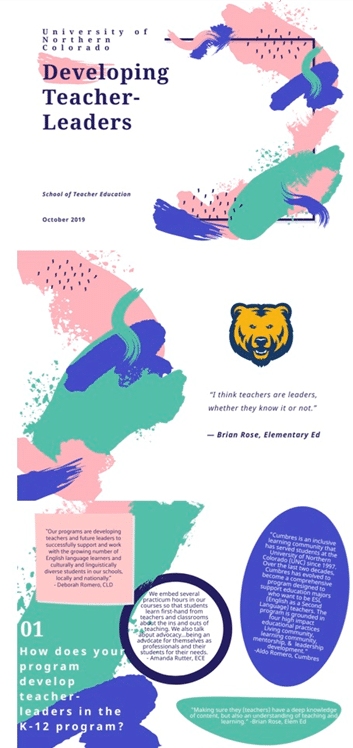
The University of Northern Colorado (UNC) holds a long-standing tradition of developing its future teachers as leaders in the community. Since 1889, the school has taken pride in its commitment to teacher excellence. However, never content to settle, the faculty and staff that constitute UNC’s School of Teacher Education (STE) continue to encourage the next generation of teachers to blaze their own trails and inspire change in their communities.
In addition to delivering the widest array of licensure programs in Colorado to meet the state and national needs, STE at UNC offers specialized licensure and endorsement opportunities within its diversity framework. Programs such as the Cumbres Teacher Preparation Program—an inclusive learning community that has served students at UNC since 1997—and Culturally and Linguistically Diverse (CLD) and Teaching English to Speakers of Other Languages (TESOL) endorsements urge teachers to utilize culturally responsive curriculum in the classroom.
Aldo Romero, the director of Cumbres, says the Cumbres program “is a co-curricular, student support services and scholarship program. Over the last two decades, Cumbres has evolved to become a comprehensive program designed to support education majors who want to be English as a Second Language teachers (ESL). The program is grounded in four high impact educational practices: living community, learning community, mentorship, and leadership development.” He also says that Cumbres educators are constantly “acquiring new knowledge and skills to support their development to become not only excellent teachers but also exceptional leaders in K-12 settings.”
24 Oct2019
By Ryan Carrillo
The Teacher Diversity Research Award is presented by the AACTE Diversified Teacher Workforce (DTW) Topical Action Group (TAG) for outstanding research and advocacy related to various policies, practices, programs, pedagogies, systems, and/or institutions for the purpose of advancing teacher diversity. The research leadership embodied by the recipient of this award reflects the DTW TAG’s mission and goals and advances our current understanding of how to diversify our teacher workforce to enhance educational opportunities for all students. Recipients of this award have published articles, books, and /or created professional development services or products that function as tools and resources to help facilitate teacher education programs, leaders, and/or policymakers in strategic planning and project implementation that actualize the goal of creating a diverse teacher workforce in the 21st century. In addition, recipients of this award will evidence a service-minded disposition toward addressing teacher diversity in research and practice through their leadership and participation in the local community, school, and/or grassroots service efforts.
In recognition and honor of this important work, the recipient of this award will receive a $1,000 honorarium and be invited to give a featured research talk at our 2020 DTW Institute at the 2020 AACTE Annual Meeting in Atlanta, GA. Also, the recipient of the award must participate in the 2020 DTW Teacher Diversity Research Award Selection Committee and /or contribute to the planning of the 2021 DTW Institute.
In order to nominate someone (self-nominations accepted) for the DTW Teacher Diversity Research Award, email the following documents with “Teacher Diversity Research Award” as the subject line to Marvin Lynn at coe-dean@pdx.edu by December 15, 2019:
18 Oct2019
By Lynn M. Gangone
Last month, the AACTE Board of Directors approved the Association’s new strategic priorities. Along with our new vision, mission, and core values, these priorities will guide AACTE’s work. Our values of diversity, equity, and inclusion; inquiry and innovation; and quality and impact will permeate all of our initiatives. Please take a few minutes to watch the video (or read the transcript) to learn more.
AACTE collaborates with its members and partners to revolutionize education for all learners. Learn more at aacte.org. And stay tuned for our November Board of Directors elections!
P.S. Secure your spot for AACTE’s 2020 Annual Meeting at the early bird rate by October 30!
15 Oct2019
By Justin Mattingly
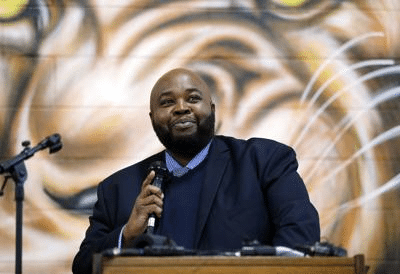
This article and photo originally appeared in the Richmond Times-Dispatch and are reprinted with permission.
Calvin Sorrell was the only black male teacher Rodney Robinson had.
He taught in King William County for three dozen years and remembers Robinson as knowledgeable, caring and talented. Robinson was shy, though, lacking many teachers who looked like him.
“The potential was there; he just had to come out a little bit,” Sorrell said. “I knew he always had the ability.”
Robinson looked up to the one black male teacher he did have, who taught him how to play the trombone, baritone and tuba. He became a teacher to give students the teacher he had only once, among other reasons.
“Kids need positive role models,” Sorrell said of being a black male teacher. “It gives them someone to look up to, and he was no exception.”
It surprised him when Robinson became a teacher, but knowing Robinson now, a man driven to improve teacher diversity while getting to know his students, Sorrell was not shocked to find out last week that Robinson is the National Teacher of the Year.
15 Oct2019
By Davis Dixon and Ashley Griffin

A majority of the nation’s public school students are students of color, but less than 20% of teachers are teachers of color—and only 2% are Black men. While more teachers of color are entering the classroom, data reveal that educators of color are also leaving at higher rates than their peers. To show the root cause of this problem and to identify solutions, The Education Trust and Teach Plus today jointly released new research that examines the challenges teachers of color face and documents the experiences of staff in schools that deliberately work to retain faculty of color.
If You Listen, We Will Stay: Why Teachers of Color Leave and How to Disrupt Teacher Turnover comprises authentic narratives of teachers of color and successful school leaders. For this report, researchers conducted focus groups with teachers who identify as Black or Latino who talked about their experiences in the workforce and what schools, districts, and states could do to keep them in the field. Researchers also conducted case studies in schools and districts that were selected for their intentionality around retaining teachers of color.
High-Level Findings
In the focus groups, five themes emerged, highlighting the challenges that teachers of color face in the workforce and the reasons many of them fall out of teaching: (1) experiencing an antagonistic school culture; (2) feeling undervalued; (3) being deprived of agency and autonomy; (4) navigating unfavorable working conditions; and (5) bearing the high cost of being a teacher of color.
15 Oct2019
By Gilda Martinez-Alba
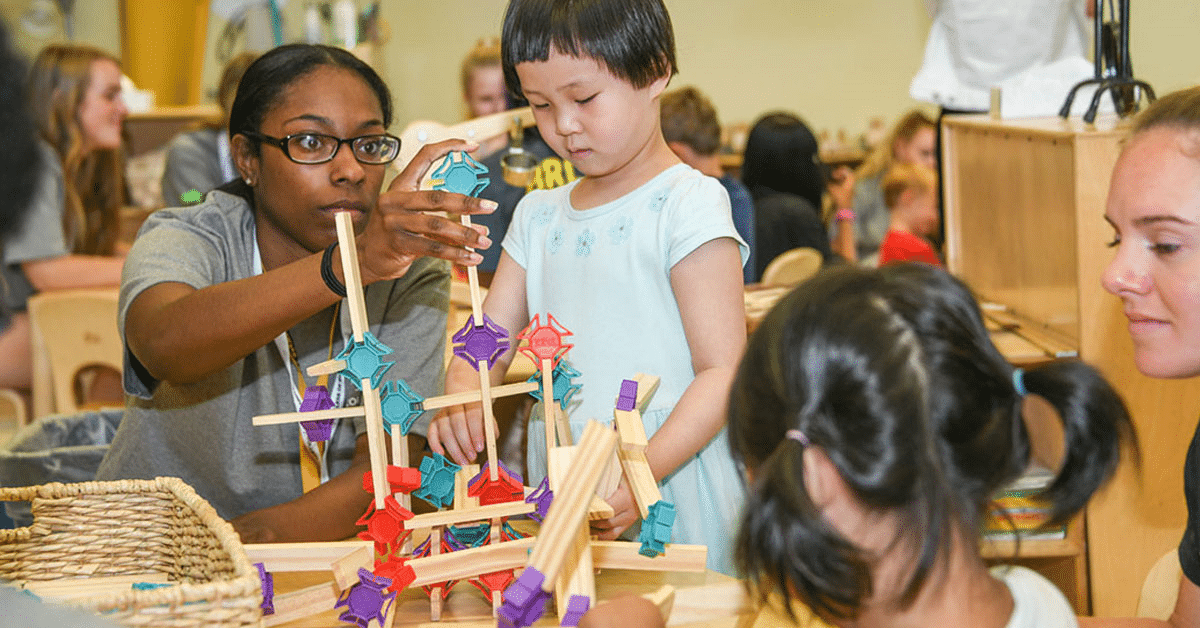
This article and photo originally appeared on the Engage TU-Towson University blog and are reprinted with permission.
The Towson Univerity (TU) Teacher Scholars Summer Institute premiered this summer (July 15–18) in an effort to recruit high school students into teaching. This was also an effort to work more closely with our Teacher Academy of Maryland (TAM) program.
One of our main goals was to assist in recruiting more underrepresented students into the field of education, which is predominantly composed of white females across the nation. Conversely, about half of K–12 students are from diverse backgrounds and/or are male. We are also facing a critical shortage of teachers in the U.S., and Maryland is facing the same issues. In fact, all 24 counties in Maryland are experiencing a shortage of teachers based on the last Maryland State Department of Education Staffing Report. In addition, enrollments at TU and across the nation have been declining in education programs. Therefore, we were piloting this program to help create a pipeline of more teachers, as well as more diversity among teachers.
26 Sep2019
By Govinda Budrow
The excerpt below is taken from an article originally published on the American Indian College Fund website and is reprinted with permission.

When it comes to STEM, it may be the roots that hold us in the field, the classroom, and in our love for science, technology, engineering, and mathematics.
As Native Americans, there has been a complicated history and relationship with formalized education. Beginning with boarding schools and day schools that mandated assimilation and rejection of Indigenous community languages and wisdom, the disruption has spanned for well over a century, with the abusive boarding school era coming to a close as late as the 1970s. Each generation since these boarding schools struggles with the false dichotomy that one can either be Indigenous or do well in school.
20 Sep2019
By Lynn M. Gangone
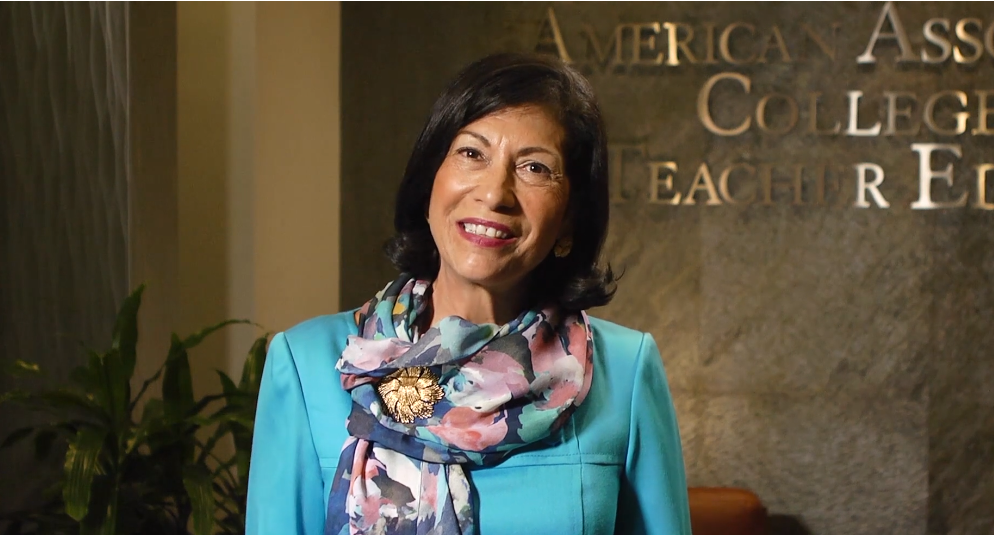
America is a country of immigrants. Through each wave of immigration, our public schools incorporate immigrant children into the fabric of our country. Our public schools serve as a cultural incubator to aid and nurture acceptance of diversity. Our local classrooms should be a microcosm of a global demographic. We, as educators, need to harness that belief for our teachers and the students they teach and guide.
How do America’s immigration challenges impact schools?
The challenge is that there are undocumented students entering U.S. schools, colleges, and universities who were not given the option to decide for themselves whether they wanted to come to this country. They have been incorporated into society, but are affected by current practices that impact their safety and security. It is projected that by the year 2040, one in every three children in the United States will grow up in an immigrant household (Suárez-Orozco, Suárez-Orozco, & Todorova, 2008). It begs the question: How do we work with those students?
Educators, school support staff, and service providers are often the first individuals in whom a student and/or family confides and reveals that they are undocumented. Recent efforts to identify undocumented parents and children in the United States challenge public schools in their efforts to meet the needs of all children residing within their school districts. Public schools are often embroiled in politically and legally sensitive situations, in which they must balance their responsibilities to serve immigrant and undocumented children, while meeting the expectations of local authorities to identify undocumented individuals.
What role do educators play in supporting immigrant children and their families?
19 Sep2019
By Kimberly Underwood

This article and photo originally appeared in EdSurge and are reprinted with permission.
Two percent. That figure may seem insignificant, until you understand the context. Despite students of color representing more than half the student population, Black males make up only two percent of the teacher workforce. So as it happens, that statistic is very significant as this lack of diversity has negative implications for all students.
For years, Black males have been underrepresented in PK-12 education. While there have been many efforts to diversify classrooms by adding more Black male educators, there are still obstacles preventing us from successfully reaching this goal. Now these educators are speaking up and their voices are sounding the alarm for education diversity.
For years, Black males have been underrepresented in PK-12 education.
13 Sep2019
By Madeline Will and Corey Mitchell

The excerpt below is taken from an article originally published in Ed Week and is reprinted with permission.
It’s a constant struggle for school districts across the country to find qualified special education teachers. An extra challenge: finding special educators of color to help meet the needs of a student population that can be disproportionately nonwhite.
Just over 82 percent of special education teachers in public schools are white, according to 2011-12 federal data, the most recent available. Meanwhile, only about half of students receiving special education services are white, according to 2017-18 data.
Yet teacher diversity matters: Decades of research has shown that students often perform better academically when they are taught by teachers of the same race.
“The special education field is really prime to recruit faculty of color,” said Jacqueline Rodriguez,
12 Sep2019
By Katrina Norfleet
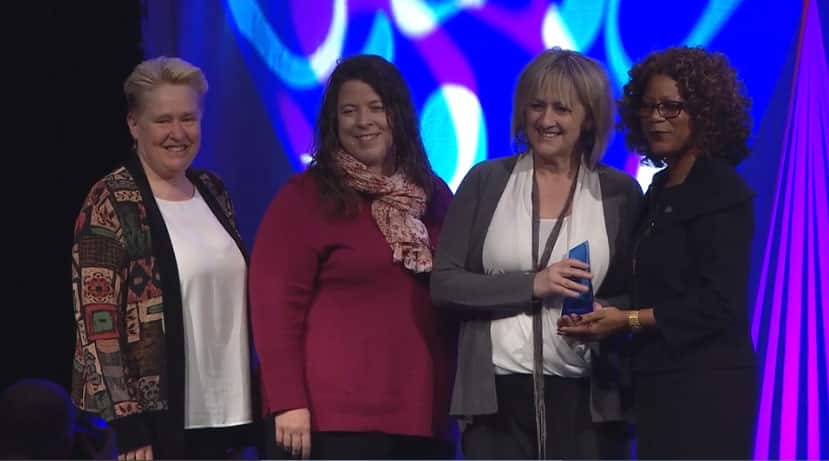
The annual Best Practice Award in Support of Multicultural Education and Diversity honors members for their outstanding work infusing diversity throughout all components of a school, college, or department of education (SCDE) as critical to quality teacher preparation and professional development. This award, sponsored by the Committee on Global Diversity, represents one of the nine categories of the annual AACTE Award Program that recognizes excellence in educator preparation.
This video features the 2018 Best Practice Award in Support of Multicultural Education and Diversity recipient, University of Colorado (UC) Denver School of Education and Human Development (SEHD). The Committee selected this program for it outstanding efforts in preparing teacher candidates from diverse, multicultural backgrounds to gain the foundational knowledge and experiences necessary to advocate for the educational equity for all children.
29 Aug2019
By John Henry
This article originally appeared on the WUSA 9 website and is reprinted with permission.
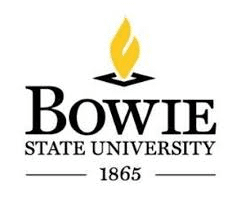
If you look inside many of America’s classrooms, you’ll notice someone is missing: black male teachers.
According to the latest data from the U.S. Department of Education, only 2% of the country’s teaching workforce are black males.
The phenomenon has not been lost on educators like Bowie State University professor Julius Davis. He recently undertook an effort to increase the number of black male teachers that can be found in DMV classrooms.
The University System of Maryland awarded Davis a $44,000 grant to operate a center at Bowie State that specializes in the research and mentorship of black male students and teachers.
22 Aug2019
By Emily Stembridge
 The IMPACT-PD grant—Improving Preschoolers’ Acquisition of Language through Coaching Teachers and Professional Development—is playing an integral role in providing preschool educators the tools they need to help their students develop proficiency in English as a second language.
The IMPACT-PD grant—Improving Preschoolers’ Acquisition of Language through Coaching Teachers and Professional Development—is playing an integral role in providing preschool educators the tools they need to help their students develop proficiency in English as a second language.
The United States Department of Education National Professional grant, funded by the Office of English Language Acquisition, aims to provide educators with professional development opportunities for improving instruction of dual-language learners in preschool.
The IMPACT-PD program, a partnership between the University of Alabama at Birmingham and the Alabama Department of Early Childhood Education, focuses on four goals to further training and education to children learning English early in life:
16 Aug2019
By Lynn M. Gangone
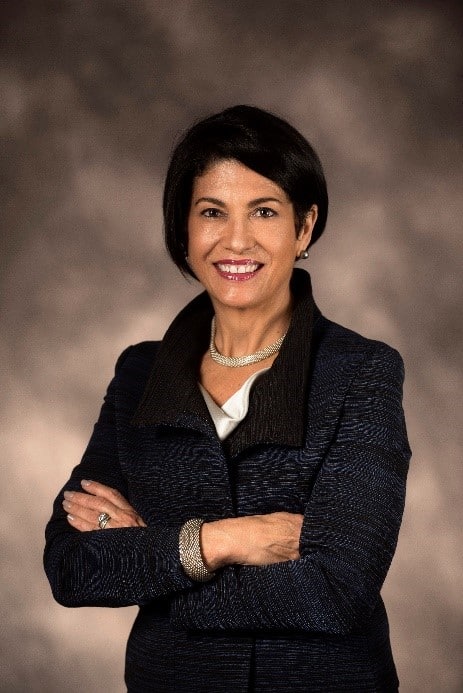 Educators and students are facing unprecedented times. The challenges both students and their teachers confront today vastly affects the efficacy of even the best educator’s efforts to create and foster students’ zeal for learning and to contribute to the society they will one day shape. Yet, educators must stay committed to fulfilling their social responsibility now more than ever before.
Educators and students are facing unprecedented times. The challenges both students and their teachers confront today vastly affects the efficacy of even the best educator’s efforts to create and foster students’ zeal for learning and to contribute to the society they will one day shape. Yet, educators must stay committed to fulfilling their social responsibility now more than ever before.
What Should Social Responsibility Look Like in the Teaching Profession?
This varies from educator to educator, so the answer to this question is complicated and multi-faceted.
Education is about opening minds, creating new knowledge. It is an expansive endeavor. In theory, education should provide us with the understanding and capacity of what it means to be a citizen of this nation and the world. Our nation’s founders understood the importance of an educated citizenry. Today, I believe that we need educators to support both a students’ academic development and citizen development.
13 Aug2019
By Katrina Norfleet

The September/October 2019 issue of the Journal of Teacher Education (JTE) is now available online, while printed copies are arriving in the mail to subscribers around the country. Below is a summary of the articles included in Vol. 70, Issue 4, 2019:
In “Teacher Agency and Resilience in the Age of Neoliberalism,” members of the JTE editorial team, Tonya Bartell, Christine Cho, Corey Drake, Emery Petchauer, and Gail Richmond, address how the articles in this issue provide insights into ways educator preparation programs can support teachers in developing and enacting agency. They discuss how making small shifts or adaptations in everyday teaching practices can create more just and equitable teaching and learning.
In the paper, “Whiteness as a Dissonant State: Exploring One White Male Student Teacher’s Experiences in Urban Contexts,” Stephanie Behm Cross of Georgia State University, Nermin Tosmur-Bayazit of Fitchburg State University, and Alyssa Hadley Dunn of Michigan State University, suggest that Whiteness itself is a dissonant state. The authors argue that

















 The IMPACT-PD grant—Improving Preschoolers’ Acquisition of Language through Coaching Teachers and Professional Development—is playing an integral role in providing preschool educators the tools they need to help their students develop proficiency in English as a second language.
The IMPACT-PD grant—Improving Preschoolers’ Acquisition of Language through Coaching Teachers and Professional Development—is playing an integral role in providing preschool educators the tools they need to help their students develop proficiency in English as a second language. Educators and students are facing unprecedented times. The challenges both students and their teachers confront today vastly affects the efficacy of even the best educator’s efforts to create and foster students’ zeal for learning and to contribute to the society they will one day shape. Yet, educators must stay committed to fulfilling their social responsibility now more than ever before.
Educators and students are facing unprecedented times. The challenges both students and their teachers confront today vastly affects the efficacy of even the best educator’s efforts to create and foster students’ zeal for learning and to contribute to the society they will one day shape. Yet, educators must stay committed to fulfilling their social responsibility now more than ever before.